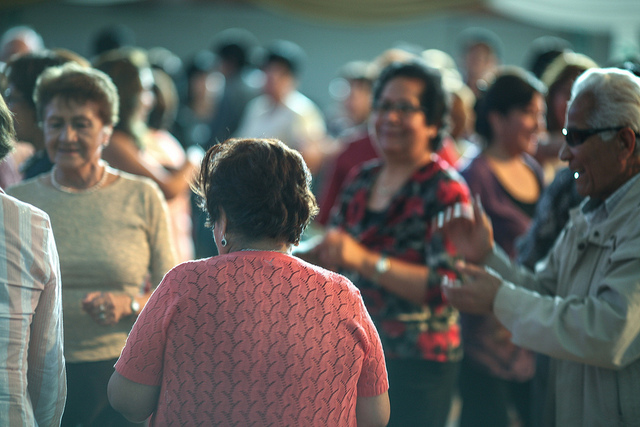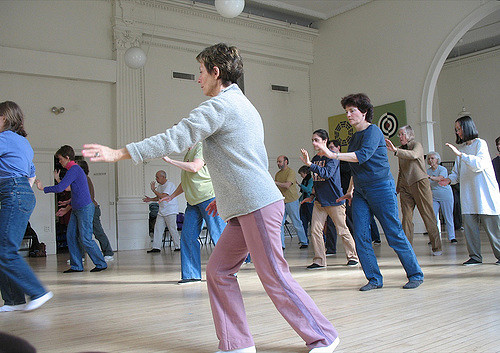
As you get older, doesn’t it seem as though time passes faster and faster? That’s the perception most of us have, although intellectually we know that time passes at exactly the same speed.
But perception counts for a lot. And based on that perception, twenty years of retirement will seem to pass much more quickly than the first twenty years of your life or any twenty-year period of your working career.
Why does time seem to pass at an ever-accelerating rate?
One possible explanation is that each passing year represents a smaller percentage of your life. When you celebrated your fifth birthday, each year you had lived up to that point was 20% of your life. And you didn’t even remember much of the first three years! But when you celebrate your 50th birthday, each year is only 2% of your life. Each year seems less significant.
Psychologist William James believes that time seems to pass more quickly because as we age, there aren’t as many memorable events. When we were younger, there were more firsts. There were more new things we discovered that remained etched in our memory.
As routine and habits took over our lives and as we had fewer new experiences, we had fewer “memory markers” to add to our lives. When we think back over the past year and wonder where all the time went, it’s because fewer things happened during that time that stood out.
Regardless of the reason why time seems to pass more quickly, the more important question is: What can we do to counteract this phenomenon and gain more value and enjoyment from our years of retirement?
Here are eight suggestions for slowing down the passage of time and realizing more value from the remaining time you have.
1. Shake up your routine
Routine makes your life seem predictable, uneventful, and dull. Some amount of routine is unavoidable, such as eating, sleeping, walking the dog, and doing household chores. Plus, there are some activities you include in your daily routine by choice, such as exercising, writing, meditating, or any other regular activity that you want to be a part of your life.
But you can take a critical look at everything you do throughout an average day and identify some things you can eliminate, such as time wasters or activities that no longer deliver value. You can rearrange your daily schedule. You can choose a few things from your list of things to do someday and actually do them.
You can find more activities like movies or concerts to enjoy, new restaurants to try, and new stores to visit. Try taking a different route to get somewhere or drive through an unfamiliar part of town. You can visit that local museum that you have driven past for years.

2. Curate your life
Imagine you are a curator for an art museum. Your museum has thousands of items in its collection, plus more items you could borrow from other museums or obtain from local artists. If you were curating an exhibition about the American Southwest, you would gather paintings of the southwestern landscape, Native American crafts, and other pieces that are relevant to this region. You wouldn’t include Renaissance paintings, Chinese scrolls, or posters from World War II. It may be good art, but it wouldn’t belong in the exhibit.
It’s the same with your life. What do you want your life to look like? If you want to spend a lot of time traveling, then you probably don’t want to plant a garden that needs tending regularly or have pets that require constant care. If you want to have time to paint artwork or write a novel, then you probably want to turn down requests to serve on a board or join a social group.
Much of what we do doesn’t fulfill any meaningful purpose in our lives. Do things that matter. Do more things you enjoy and fewer that you don’t.
~~~~~ continued below ~~~~~

This topic is explored in greater depth in my book Smooth Sailing Into Retirement. This book will guide you from your last few months of work through your first year of retirement. It identifies the many ways your life will change and prepares you for the emotions you may experience along the way. You will learn how to design your new day-to-day life in a way that will reflect your passions and interests. You will be inspired to create a new identity for yourself that embodies the way you plan to live in retirement and frees you from the limitations of your former job title.
3. Focus on milestones
It’s easy to allow your days to be filled with maintenance tasks such as cooking, cleaning, laundry, and shopping. These types of chores can easily consume all of your waking hours if you let them.
Look past your daily to-do list and set your sights on the next item on your bucket list. Break that down into small tasks. For example, if you want to travel to Europe, there dozens of small tasks you will need to do before you go, from renewing your passport to making hotel and flight reservations. You can do a little bit every day.
Always have something significant that you are working toward, and do something each day that brings you closer. That’s a great way to experience more happiness each day.

4. Maintain quality relationships
Isolation and loneliness are problems that plague too many retirees. But the solution is not just to have more people in your life; it’s to have more quality people in your life. People who have a negative demeanor, complain constantly, and engage in gossipy small talk will drain the happiness from your life.
Just as you can curate the activities in your life, you can curate the friendships in your life. Look for people who seem uplifting and share common interests. If you need to meet some new people, try taking a class or finding a new group to join that is focused on something that interests you. Chances are, you will be creating more memorable moments with these people.
5. Live with a sense of urgency
Some retirees, especially those of us in our late 50s and early 60s, act as though we still have all the time in the world. As we get older we should become more aware that we have fewer and fewer years left to live. Of course, we can never know for sure how much longer we will live, but we can be certain that the amount of time we have left grows shorter with each passing day.
That may sound depressing, but it need not be. You can approach the reality that your remaining days are decreasing with a sense of opportunity and urgency. You can choose to regard each day with greater value.
Personally, I’m not a fan of the “if you only had one year to life” exercise. Instead, I suggest that you visualize yourself at the end of your life, reflecting back on the people and experiences you enjoyed. What would you want your life to look like? Wouldn’t you prefer to have a rich catalog of memory markers to reflect back on? Will you be satisfied with everything you did? What can you change now that will make your end-of-life review, as well as each end-of-year review, more satisfying?
If you choose not to think in terms of having diminishing time left, you can fall into the trap of always postponing the things you hope to do to some indeterminate date in the future, commonly known as “someday.” Waiting may mean losing the opportunity forever. Stop putting things off for “someday.”
6. Take care of your health
This one is pretty obvious. The better your health is, the longer you are likely to live and the more years you are likely to have remaining in which you have the stamina and mobility to do the things you want to do.
So take steps today to improve your diet and include more activity into your everyday life. If you need to lose weight, get started. If you still engage in any bad habits, try to kick them once and for all.

7. Choose to be active
Studies show that simply getting out of your chair and walking more throughout the course of your day goes a long way toward keeping you in better health longer.
But there’s a more important reason to remain active: You are more likely to accomplish things you want to do, enjoy your life, and create more memory markers.
At many points throughout each day, you arrive at a moment when you can choose to sit in front of the computer or the TV, or do something active. Of course, it’s okay to enjoy TV and your computer in moderation. But try to be mindful of how often you choose one or the other.
8. Be mindful and present
Being mindful means paying attention to the details of your life and incorporating all your senses into the remembering process. Our minds are geared to always be thinking about something else, such as what else you need to do today or something that has happened in the past or might happen in the future.
Try to live more mindfully in the present moment. Smell those roses, savor each bite of a fine meal, stay tuned to your surroundings, and pay attention to the people you are with. Stop checking your phone all the time.
It’s fine to look forward to trips and events you have coming up and fondly recall good memories, up to a point. But dwelling too much in the past or worrying too much about the future will rob you of today. You can’t create those experiences that will bring enjoyment to your life when you’re not focused on living your life today.

At the end of each year (or at any time, such as right now), take some time to reflect back on your life. Try to recall events that served as memory markers during the past year. You may want to write them down in a journal or log. You will probably realize that a lot more happened during the past year than you initially thought.
If you decide that you didn’t have enough memory marker events during past year, the strategies in this article should inspire you to make some changes in your life so that you can enjoy your life more fully and create more valuable memories.
Please feel welcome to comment below.
© 2017 Dave Hughes. All rights reserved.
Photo credits:
Timex clock: Sonja Langford.
Museum: Scott Webb.
Happy people dancing: Alex Prolmos. Some rights reserved.
People practicing tai chi: Martha McCollough. Some rights reserved.
Rose: Miguel Mendez. Some rights reserved.




3 Responses
I couldn’t agree more to keeping some “spice” in life with some spontaneity!
Hi Dave! Great advice for anyone wanting to age in a positive way and retire. I agree especially with your advice to share up our routines. So many people I know get locked into doing the same thing over and over because it is comfortable–never considering how it limits us. May we all find ways to add to the novelty of life and keep learning no matter what. Thanks for the reminders. ~Kathy
Hi Kathy,
Thanks for your comments and your kind words. I have observed that many people, once they retire, just keep doing all of the same things they have done for most of their lives, minus going into work. There’s so much more possibility!
Thanks,
Dave